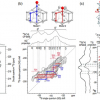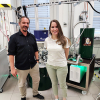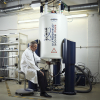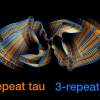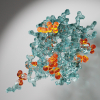
Bruker has launched PhenoRisk PACS™ RuO, a research-use-only NMR test for molecular phenomics research on “Long COVID” patients’ blood samples, using a multiplexed combination of biomarkers discovered at the Australian National Phenome Center (ANPC) at Murdoch University, under Director Jeremy Nicholson. The PhenoRisk PACS™ RuO test is promising for research on early-stage risk factors, on longitudinal recovery monitoring and on potential secondary organ damage in cardiovascular disease, type II diabetes, kidney dysfunction and inflammation. It consists of an Avance™ IVDr NMR spectroscopy system that tests several biological mechanisms of action simultaneously in a 20-minute blood-test from SARS-CoV-2 acute infection survivors who suffer long-term sequelae, termed either Post-Acute COVID Syndrome (PACS), or commonly known as “Long COVID” syndrome.
Recent publications have demonstrated that NMR is playing a pivotal role in measuring COVID-19 progression based on phenomic molecular signatures, and it is also providing new insights into various PACS mechanisms of action, as well as into Long COVID clinical management and treatment options. The PhenoRisk PACS™ RuO test characterises metabolic and proteomic biomarkers of SARS-CoV-2 pathobiology, even in asymptomatic acute COVID cases, thereby enabling multi-organ risk assessment, recovery and therapeutic research in multiple Long COVID dysfunctions.
This new NMR test has the potential to quantitatively discriminate PACS patients from healthy or fully recovered individuals by studying COVID-triggered pheno-conversion, defined as transient or persistent systemic change of the molecular signatures in human plasma samples after acute infection. Subsequent pheno-reversion of metabolic signatures detected by PhenoRisk PACS™ RuO may indicate PACS recovery.
In addition to metabolism analytes, PhenoRisk PACS™ RuO quantifies composite signals for groups of glycoproteins and phospholipids, which can indicate inflammation and cardiovascular disease risk, as well as a new NMR biomarker called supramolecular phospholipid composite (SPC). These markers show excellent discrimination of COVID-19 from controls, while the Glyc/SPC ratio has been proposed as a useful molecular marker for Long COVID, which could significantly augment current clinical and therapeutic research.


